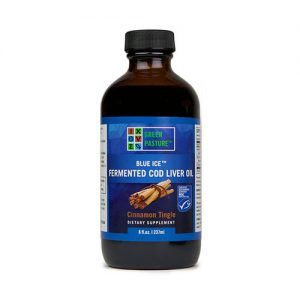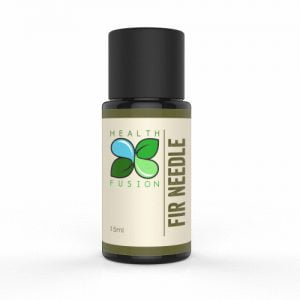Description
Native Americans used Sumac for drink. This tea contains other herbs as well to give a refreshing drink that is full of nutrients. These herbs help lower blood pressure, is a digestive aide, improves blood sugar, and cools body temperature. On a hot summer day, Indian Lemonade is the perfect natural “refresher”!
INGREDIENTS:
Hibiscus Flowers
Hibiscus is a flower grown in tropical climates. It is used for its sweet and sour flavor, and for its red color. Many red teas on the market will have hibiscus as an ingredient, for example Raspberry zinger has hibiscus in it because raspberries alone would not be enough to give it the beautiful red color. There is more than just coloring to this little flower though.
Nutritional Facts:
Hibiscus is full of antioxidants that can help prevent cancer, aging, and certain eye diseases. Hibiscus has vitamin A, vitamin C, Vitamin B1 (also known as Thiamine), B2 (also known as Riboflavin), and B9 (also known as folic acid). It also contains Calcium, Iron, Potassium, Phosphorus, Sodium, Zinc, and Copper. The Vitamin A can be used for body functions, or sent for storage in the liver and fat cells. Vitamin C promotes heart health, collagen production, and the development and maintenance of blood vessels and cartilage. Vitamin B1 helps the body get energy from food and helps with the nervous system. Vitamin B2 helps to maintain normal red blood cells and other functions such as the metabolism of iron in the body. Vitamin B9 is also known as folic acid, and helps with healthy skin and eyes and many other tissues. Calcium is made popular for helping with strong teeth and bones, but it also important to human metabolism and heart health. Iron aids in the absorption of all that wonderful vitamin C and with the production of hemoglobin in the blood cells. Potassium aides in carbohydrate metabolism and is also important to the electrical levels in the body. Phosphorus works with calcium to build strong bones and teeth- there must be a balance of both of these minerals. Sodium helps with electrolyte and PH balance in our body. Essentially, this makes Hibiscus tea a natural “Gatorade” drink of choice! Zinc boosts the immune system and aids in the production of enzymes. Copper is required to manufacture collagen, making it excellent for joints and skin!
Medicinal Properties:
Hibiscus may lower systolic and diastolic blood pressure, but do not use hibiscus if you take blood pressure medication to prevent interactions. May aid in weight loss by limiting hunger and regulating the metabolism, and stops chemicals that store carbohydrates. It may lower blood sugar levels, and if you are a diabetic, may cause dizziness, so do not use in excess. Hibiscus lowers blood fat levels meaning it lowers the bad cholesterol while increasing the good. It also helps keep the liver working effectively, fights bacteria, and because it is high in polyphenols, it helps fight against cancer.
Sumac
Sumac is a tree that is also known as the lemonade tree, that was used by the North American Indians, and where we get the name “Indian Lemonade” from. They used it to cure mouth sores, heal gonorrhea, relive irritation from poison ivy, and stop bleeding after childbirth. Middle Eastern cultures use sumac as a culinary spice to flavor their favorite dishes. Its sour taste makes it great for this purpose, and I can see how it could really enhance the flavor of hummus.
Maybe you are thinking, “I thought sumac was poisonous? is it really safe?” Here is the rule of thumb to go by: If it is red, it is edible, and if it is white, it is poisonous.
Nutritional Facts:
Sumac is high in vitamin C and antioxidants, making it great for reducing risk of heart disease, signs of aging, and cancer. It is considered a super-food for diabetics, improving their health over time.
Medicinal Properties:
Sumac has several medicinal properties. It is astringent, diuretic, an emmenogogue, febrifuge, refrigerant, and tonic. Let’s explore what these terms mean. As an astringent, it can dry up secretions and discharge. As a diuretic, it increases urine production, helping to expel toxins and waste products. As an emmonogogue, it helps with menstrual flow. As a febrifuge, it helps reduce fevers. As a refrigerant, it helps lower body heat. As a tonic, it helps strengthen and invigorate the organs.
Lemongrass
Lemongrass is an aromatic herb that is used not just for teas, but for scenting soaps and lotions. It is easy to grow and a great addition to any garden. It is also used in Asian cuisine.
Nutritional Facts:
Lemongrass contains Vitamin A, Vitamin C, sodium, magnesium, calcium, iron, manganese, phosphorus, potassium, selenium, zinc, vitamin B6, Riboflavin, and niacin. Magnesium stabilizes blood pressure, keeps heart rhythms steady, and helps maintain strong bones- it works with calcium. Manganese helps with calcium absorption as well, and this mineral works on the cellular level to help form tissue, bone, and blood as well as sex hormones. Selenium is a mineral that supports heart health, immune system, skin and eye health. Vitamin B6 aids in protecting brain health and nerve cell health. Niacin (also known as B3), helps turn food into glucose that the body can use for energy, and it also helps with the adrenal glands. (See the section in Hibiscus for information on Vitamin A, vitamin c, sodium, calcium, iron, phosphorus, potassium, zinc, and riboflavin)
Medicinal Properties:
Lemongrass is a great drink for a cold because it is antibacterial, anti-fungal, and anti-inflammatory. It will also relive joint pain and relax muscles, and relive menstrual pain and treat headaches. It is diuretic, and antioxidant. It is also a galactagogue, which means it will increase the production of milk in nursing mothers. It is antidepressant by activating the release of serotonin in the brain. Also lowers blood pressure and cholesterol, and is diaphoretic (induces sweating) therefore great for reducing a fever. Studies have show that the citral in Lemongrass helps stabilize insulin levels and improves insulin resistance.
Ginger Root
This root is a spicy one, so we use just a little in our blend of Indian Lemonade. It is a strong antioxidant that protects the liver and stomach. But watch out! A little goes a long way. When taken in large amounts, it can cause stomach upset. Ginger root is known to fight inflammation, cleanse the colon, stimulate circulation, and reduce spasms and cramps. It can also be used topically for wounds and sores. Ginger root is also used in cooking, especially good in Asian cuisine.
Nutritional Facts:
Ginger root has Amino Acids, calcium, essential fatty acids, iron, magnesium, manganese, phosphorus, potassium, selenium, zinc, vitamins B1,B2, B3, and C. We will take a look at two in this list, as the others have already been covered. Amino Acids are the building blocks of protein, including carbon, hydrogen, oxygen, and nitrogen. The two essential fatty acids that humans need are omega-3 and omega-6 fatty acids, which are only found in food sources because the human body does not produce them, are both found in ginger root.
Medicinal Properties:
Ginger root’s properties include adjuvant, carminative, diaphoretic, and sialagogue. Adjuvant means that it is an immune response enhancer. Carminative means that is relieves gas and bloating. Sialagogue means that it promotes the production of saliva. Diaphoretic has been mentioned above. To soothe a sore throat, just chew on the root raw. When ginger is combined with laxative herbs, it makes it a little milder. Studies have shown that it has protective effects for the brain, because of 6-shogal and 10-gingerol, both have powerful effects that have been proven; 6-shogal inhibits the release of redness causing chemicals known to cause damage to neurons, and 10-gingerol impacts the production of nitric oxide and other chemicals that lead to redness and swelling in the brain. This is why it is so effective for migraines as well. It promotes healthy blood pressure and may help osteoarthritis and muscle aches, maybe as effective as NSAIDS! May also benefit cardiovascular health.
Lemon Peel
Lemon Peel There is also Lemon peel in our Indian Lemonade, in very small amounts, just enough to give it more of a “lemony” flavor and add a touch of the wonderful benefits. One side note though, lemon peel can contribute to further crystallization if you have gallbladder or kidney stones, you may want to avoid lemon peel. Other than that, Lemon peel is safe for all healthy adults.
Nutritional Facts:
Lemon peel has high amounts of citric acid, potassium, calcium, poly-phenol flavinoids, fiber, vitamin C, and pectin. I will not highlight fiber, as we are not chewing and digesting the lemon peels in our Indian Lemonade, just enjoying the flavor and the nutrient benefits! Citric acid is a naturally occurring acid in all citrus fruits that can be antibacterial. Poly-phenol flavinoids are antioxidants that contain anti-inflammatory, anti-carcinogenic, and other biological properties to fight free radicals, and therefore, cancer. Pectin is found in apples, berries and other fruits, and is a gel like substance similar to gelatin, but plant based. It promotes healthy digestion.
Medicinal Properties:
Lemon peels may help with boosting your immune system, increasing metabolism and burning fat, fighting cancer, boosting oral health, improving skin, lowering cholesterol, and strengthening bones. It also helps to improve the alkalinity of the blood and prevent fluid retention. Digestion and liver function are improved by drinking just two cups of lemon peel tea a day, taken on an empty stomach.
Stevia
Stevia is the sweetening ingredient in our Indian Lemonade! Stevia is not just a sugar substitute, it is medicine as well! If taken in a natural form, stevia can alleviate blood pressure, benefit weigh loss, help prevent cancer, aid in managing diabetes, is useful in treating eczema and dermatitis, boosts bone health and reduces risk of osteoporosis, and helps prevent cavities and gingivitis.
Nutritional Facts:
Stevia has calcium, potassium, beta-carotene, magnesium, iron, fiber, vitamin e, and vitamin c. It is 40 times sweeter than sugar due to the steviosides, steviolbioside, rebaudiousides A-E, and dulcoside. The benefits are amazing, being able to get nutritional value from a sweetener, getting a sweetener that is also a cavity preventative, and one that helps manage blood sugar levels and weight loss. What a wonderful herb to add to your regimen! One that is a food and a medicine all in one!
TIP: Can be served hot or cold!





Reviews
There are no reviews yet.